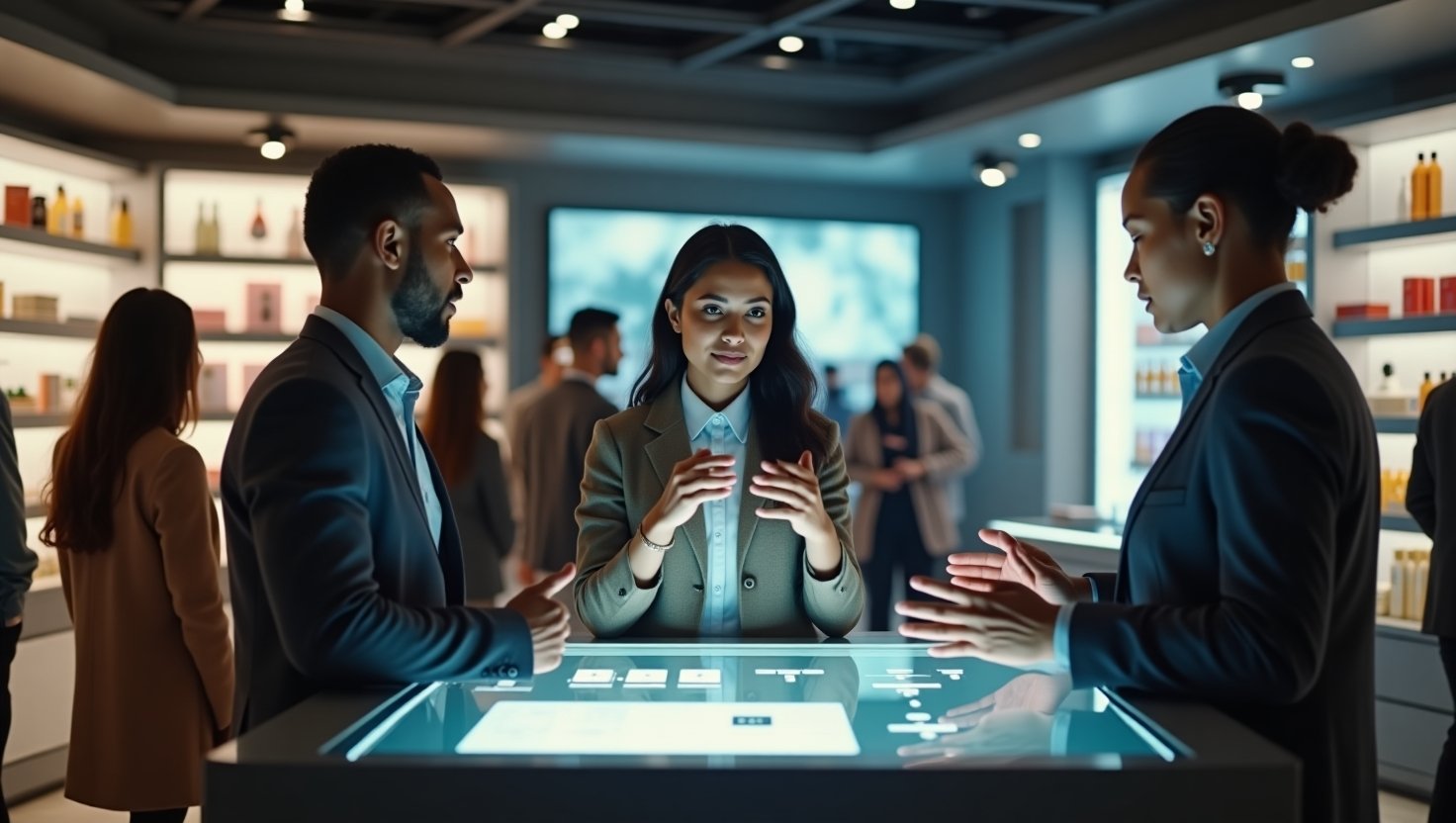Navigating New Consumer Trends: The AI Impact on Retail’s Future
As modern technology reshapes industries, few sectors experience this evolution more vividly than retail. The convergence of AI innovation and shifting consumer expectations is redefining the landscape. This article explores new consumer trends driven by technological advancements and changing consumer behavior, highlighting how businesses are adapting and what this transformation means for the retail future.
The AI Impact on Consumer Behavior
Artificial Intelligence (AI) has quickly become a catalyst for change in the retail sector. Much like the Industrial Revolution once transformed manufacturing, AI is revolutionizing how businesses operate and engage with customers. According to Simon-Kucher’s podcast series, AI and social media influencers significantly impact consumer behavior, urging retailers to adapt to these changes for growth source.
Customers’ expectations have evolved from merely finding affordable products to seeking personalized shopping experiences. Retailers like Walmart are leveraging AI tools to enhance both in-store and online shopping engagements, allowing customers to find items, view current deals, and create wish lists effortlessly source. These innovations highlight the growing trend toward hyper-personalization, where AI assists in tailoring shopping experiences at an individual level.
Influencers and Social Media: The New Retail Allies
Parallel to technological advancements, social media influencers are redefining retail strategies. Just as expert word-of-mouth recommendations in the past influenced purchasing decisions, today, influencers on platforms like Instagram and TikTok guide consumer behavior. Reports by Simon-Kucher indicate that consumers are increasingly swayed by trendsetters, leading retailers to integrate influencer marketing with AI-driven insights for maximum impact source.
Influencer partnerships have become crucial, offering brands a direct line to specific demographics. This symbiotic relationship provides influencers with products to endorse while giving retailers access to vast consumer networks. By aligning influencer marketing strategies with AI analytics, companies can better predict consumer behavior and adjust strategies in real-time.
The Future Retail Landscape: Predictions and Strategies
With the dynamic convergence of AI and social media shaping new consumer trends, what’s next for the retail industry? We anticipate several future developments:
– Enhanced Personalization: AI will drive deeper personalization, creating unique customer journeys through predictive analytics and machine learning technologies.
– Seamless Omnichannel Experiences: As consumers seek seamless transitions between online and offline shopping, retailers will focus on integrating AI to create a unified retail experience.
– Ethical and Sustainable Practices: A growing trend toward sustainability will see businesses employing AI for efficient resource management, minimizing wastage, and promoting eco-friendly practices.
Retailers such as Dollar General are leading the charge by integrating AI into their supply chain, operations, and merchandising to optimize efficiency and cater to consumer needs source. This strategic adaptation highlights the necessity for businesses to embrace technological change actively.
In conclusion, as digital advancements continue to influence the retail future, those who adapt quickly and efficiently will thrive. The integration of AI not only streamlines operations but also caters to the evolving consumer behavior, ensuring businesses remain relevant and competitive in a rapidly changing marketplace. By staying ahead of these new consumer trends, retailers can craft strategies that align with consumer expectations and market demands, carving a path toward sustainable growth and innovation.










